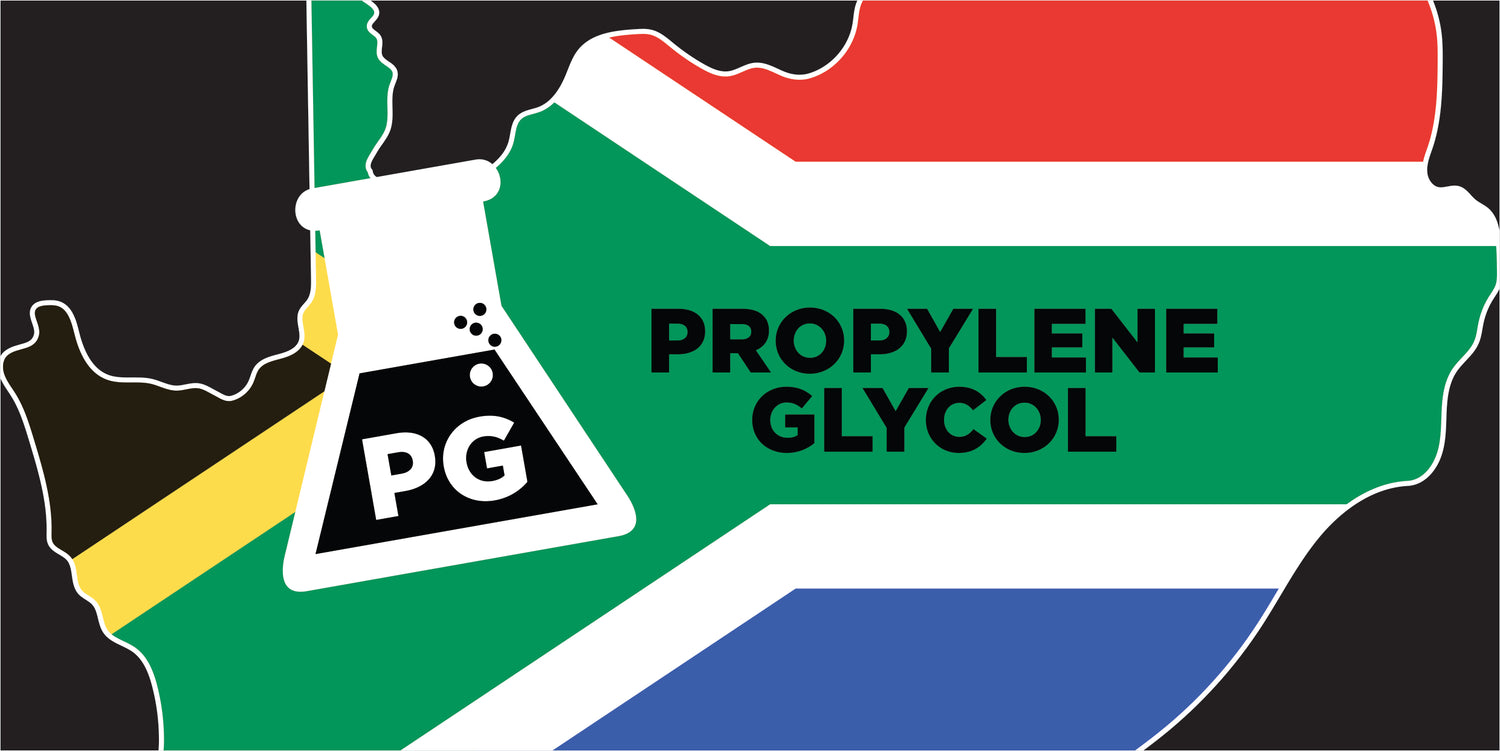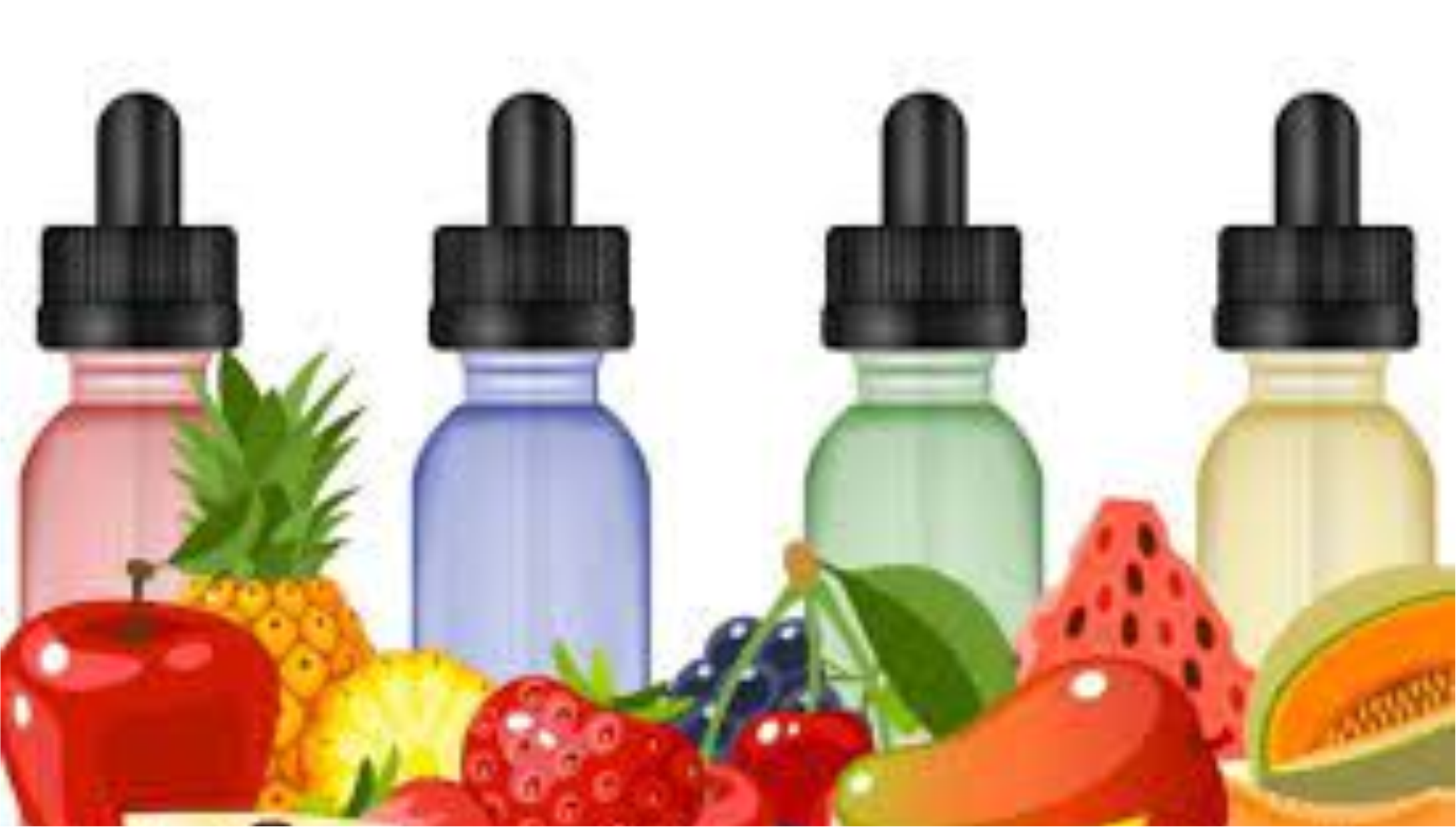Buy propylene glycol in South Africa. PG is the abbreviated term used for Propylene Glycol. PG is a by-product from petroleum and is a odourless liquid. It also provides stronger flavours than Vegetable Glycerin, which means that it is the most commonly used base fluid for flavour concentrates and nicotine.
Buy propylene glycol in South Africa through BLCK Flavour. We are stockists of Propylene Glycol which is also known as PG. We also have United States Pharmacopeia (USP) Grade available.
We distribute Propylene Glycol (PG) across South Africa.
Is Propylene Glycol "safe" to use? - Facts from a Chemist!
Propylene glycol is widely used in many personal-care products like shampoo, conditioner, and styling products due to its relatively low cost and versatility. Including it in a formula can serve a variety of purposes, which makes it a popular choice among cosmetic chemists. However, some manufacturers have recently decided to stop including propylene glycol in their products.
Propylene glycol, the chemical that makes antifreeze, is not dangerous. If it is used in low concentrations, it is safe.
In the interest of marketing "natural" products, misinformation and propaganda circulate on the Internet. I am a strong advocate of using natural products and avoiding putting toxins into our bodies whenever possible. Whenever inaccurate and incomplete information is disseminated to scare consumers into using different products, I get frustrated. I hope to clarify some misconceptions about this chemical in this article.
Propylene glycol: the chemical facts
Water-soluble.
Made from synthetic materials.
Non-toxic.
Easily metabolized.
It is a relatively small molecule with two alcohol (hydroxyl) groups (-OH). The liquid is colorless and odorless, and it is completely soluble in water. A synthetic product, PG is produced by hydration of propylene oxide, which is derived from petroleum. A petroleum-based product is not necessarily a bad thing, as the final structure and properties are more important than the source (unless contamination is an issue).
Propylene glycol is classified as "Generally Recognized as Safe" by the FDA.
The skin is rarely irritated or sensitized, even after prolonged direct exposure. Any irritation or sensitization subsides quickly after flushing. In the MSDS, direct handling is recommended due to potential irritation, which is a smart recommendation for any chemical, regardless of its toxicity level. If a worker is exposed to a chemical in its concentrated form, it is imperative that the strongest safety precautions are used. Consumers who use a product by the teaspoonful are not affected by this.
Propylene glycol is non-toxic even when ingested in large amounts.
In contrast to its dangerous cousin, ethylene glycol, PG is easily metabolized by the liver into normal products of the citric acid metabolic cycle, which are completely nontoxic. Approximately 45 percent of any ingested PG is excreted directly from the body without coming into contact with the liver. Propylene glycol has an elimination half-life of approximately four hours, and there is no bioaccumulation (building up in the body over time). The effects of ingesting large quantities of propylene glycol on the liver and the nervous system have been recorded in rare cases, but they are typically short-lived and subside once the material has been metabolized and excreted.
What "antifreeze" really means to consumers
Consumers are frequently alarmed by this term, which is simply a scientific term used to describe the lowering or depression of the freezing point of a liquid. In a snowstorm, salt is applied to roads and walkways. Melting snow and ice prevents dangerous icy conditions from developing. Salt works by lowering the freezing point of water. An example of a "safe" chemical used as antifreeze. Don't be alarmed by the term antifreeze or the chemical, propylene glycol. At low concentrations, propylene glycol, used in personal care products and even food, is considered to be safe.



Leave a comment
This site is protected by hCaptcha and the hCaptcha Privacy Policy and Terms of Service apply.